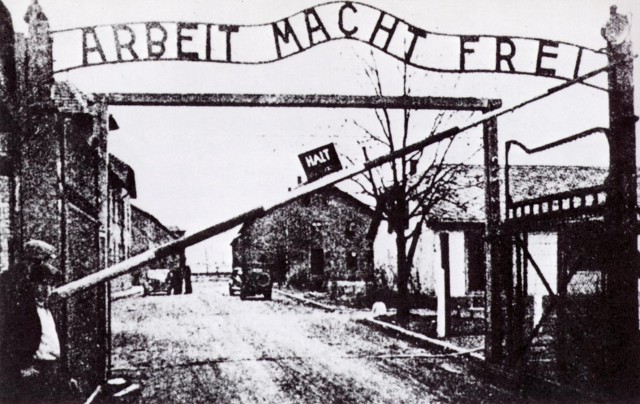58 years ago, the German government founded the Centre for Solving Crimes of National Socialism, an organization dedicated to tracking down and prosecuting Nazi war criminals.
Since its founding in 1958 this august body has tracked down 7,485 Nazi criminals, but up until 2011 they could only charge them criminally if it could be proven that they had personally committed a war crime. In 2011, a Munich court found Ivan Demjanjuk guilty of complicity in approximately 3,000 Jewish deaths in Poland during the German occupation of that country.
This precedent changed the way that Nazi criminals could be charged and opened the floodgates to prosecutions for people that had previously hidden behind the “following orders” or “only a guard” defense. This would no longer be tolerated.
In line with this new precedent, in July 2015, Oskar Groening was convicted of 300,000 cases of accessory to murder for sending Hungarian Jews to the gas chamber between May and July of 1944, and he was sentenced to four years in jail.
Also following the Demjanjuk ruling, the Centre has arrested 93-year-old Hubert Zafke in Neubrandenburg in northern Germany. Zafke is an ex-SS medical orderly who was stationed at Auschwitz; he has been charged with 3,681 counts of accessory to murder for allegedly being involved with the “cruel and insidious killing of 3,681 people” that were interred at the Auschwitz-Birkenau camp in August and September of 1944.
In this period, fourteen prison trains had arrived at the camp, discharging their human cargo to almost certain death either by the gas chamber, if they were unable to work, or by starvation, medical experiments, or neglect.
Prosecutors in the case say that Zafke was “aware of the purpose of the Birkenau camp as an extermination camp” and said: “Given his awareness, the accused lent support to the organization of the camp and was thereby both involved in and advanced the extermination.”
The trial, which will take place in the town of Neubrandenburg in northeastern Germany, is expected to run through into March. The court has acknowledged that the accused is frail and suffering from dementia; it has ordered that there be regular breaks for the accused to receive medical care.
These trials, which take place 70 years after the famous Nuremberg Trials at the end of World War II, are no less important. Perhaps the Germans have neglected to bring more of these criminals to book, but they are making up for that now.
Dozens of investigations are under way and once the evidence is gathered these trials prove that there is no statute of limitations when it comes to crimes against humanity. While Jewish organizations are vocal in their praise of the German authorities for bringing these men to account for what they did 70 years ago, all mankind should also raise their voices to ensure that nobody will ever be allowed to repeat this evil.
It is very easy to feel sympathy for the frail, bespectacled, and stooped elderly men standing in the dock. But if we simply turn away and say, “Shame, it happened so long ago, and he is so sick, let him be”, is this not disrespectful of the millions who died?

